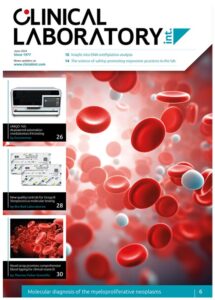Reducing the impact of multiple sclerosis
Recently I heard on BBC Radio 4 a fascinating interview of Professor George Jelineck by Caroline Quentin, both of whom suffer from multiple sclerosis (MS). MS, as no doubt you know, is a condition caused by the demyelination of neurons as the result of attack by the body’s own Th1 cells, usually resulting in progressive debilitation. There are a number of ‘types’ of MS that people can be classified as having, commonly: relapsing–remitting MS, secondary progressive MS, primary progressive MS; but also including progressive relapsing MS and benign MS. However, diagnosis is not straightforward and people can move between types as the condition progresses. It is estimated that there are perhaps around 2.5 million people worldwide living with MS and the incidence is higher in people living in colder climates. George Jelineck MBBS, MD is professor and founder of the Neuroepidemiology Unit, Melbourne School of Population and Global Health, which expressly evaluates modifiable risk factors that predict the progression of MS, as well as having set up the Overcoming Multiple Sclerosis charity and being author of the Overcoming Multiple Sclerosis book. George was diagnosed with MS in 1999 at the age of 45, having seen his mother’s progressive deterioration because of the disease. Initially devastated at the diagnosis, he quickly turned his medical knowledge and capabilities to researching the literature about MS and created an evidence-based wellness programme for himself, to which he credits his continuing good health and apparent symptom-free life. The programme includes modifications to diet [following the striking results of Swank and Duggan (Lancet 1990; 336(8706): 37–39)], ensuring adequate vitamin D levels as well as care of general physical and mental health. It seems to be becoming generally accepted that MS is caused by a coincidence of a number of environmental factors (including low vitamin D levels) on top of a genetic predisposition. The impact of this for clinical diagnostics has been the upsurge of interest in testing vitamin D levels in the last decade. Interestingly, George mentioned in the interview that when mothers with MS give birth at the end of the winter, their child is much more likely to develop MS also. The solution is simply to supplement vitamin D levels, which could easily be done across the population, similarly to folic acid. Currently there is no simple genetic test for predisposition to MS, but perhaps further work with genome-wide association, such as that published recently by the International Multiple Sclerosis Genetics Consortium (Nat Commun 2019; 10(1): 2236), will eventually lead to a genetic screen for MS risk, allowing those predisposed to it to alter their modifiable risk factors and so reduce the development/impact of the condition before the appearance of symptoms.



